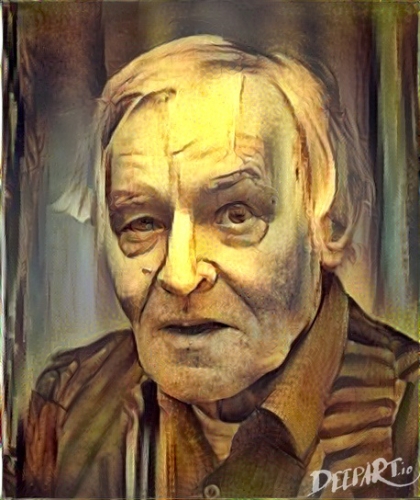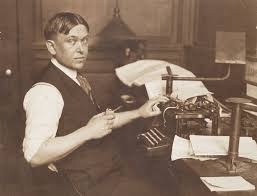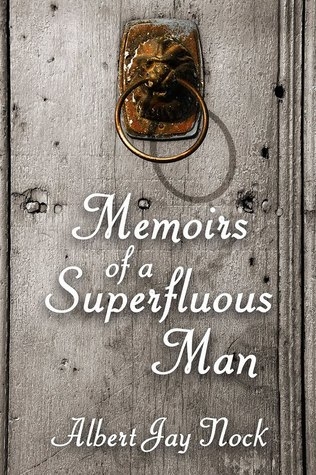Frappé par une longue et cruelle maladie, Guillaume Faye est mort dans la nuit du 6 au 7 mars 2019. Il venait juste d’achever Guerre civile raciale, son testament politique. Cet incontestable agitateur des idées de la fin des années 1970 jusqu’à sa disparition interrompit toute action métapolitique entre 1987 et 1998. Il travailla alors au magazine satirique L’Écho des Savanes et réalisa en tant que Skyman « le vengeur masqué » des canulars téléphoniques à la radio.
Avec son retour métapolitique tonitruant en 1998, Guillaume Faye prend des positions contraires à son engagement antérieur. L’idée européenne demeure cependant un axe fort de sa réflexion. Dans Mon programme (Éditions du Lore, 2012), il constate que « l’UE détruit l’Europe et chacune de ses nations. Il faut refonder l’idée européenne (p. 37) ». Déjà, en 1985, il jugeait que « l’Europe, au fond, n’a jamais vraiment existé. Ce n’est pour l’instant qu’un mythe que bien des puissances dans le monde ont intérêt à ne jamais voir se réaliser. La France, qui a tenté à plusieurs reprises dans son histoire de porter ailleurs ce mythe impérial parce que, depuis fort longtemps, elle le porte en elle-même mais ne peut pas le réaliser pour elle, trouve là, peut-être, pour la première fois depuis bien longtemps, le sens profond de sa mission (« La France en Europe », dans Actes du XIXe colloque national du GRECE, Le Labyrinthe, 1985, p. 70) ». Il avait très tôt compris la nécessaire concordance entre la France et l’Europe. « “ Je suis Français parce qu’Européen ”. […] L’identité culturelle européenne doit conditionner l’identité française et l’englober (Idem, p. 63). » Il avançait même qu’« il appartient à la France d’être le point de départ, l’initiatrice d’une nouvelle forme d’unité européenne. […] Veilleur de l’Europe, notre pays doit aussi et par conséquent en être l’éveilleur. […] La fonction de la France est d’être le détonateur de l’Europe (Id., pp. 57 – 58) ».
Auteur d’un Nouveau discours à la nation européenne (Albatros, 1985) préfacé par Michel Jobert, Guillaume Faye pense toutefois que « l’Europe […] n’est qu’en décadence (« Dans les replis du déclin : la métamorphose », dans Actes du XVIIIe colloque national du GRECE, Le Labyrinthe, 1985, p. 70) », car elle « ne souffre que du “ mal d’Occident ”. Qu’elle se dégage, en une faustienne auto-transformation, de cette civilisation et de cette tradition qu’elle a elle-même fondées, et qu’elle suive la voie – tragique et infidèle – de son destin, et elle connaîtra, comme toujours, une renaissance, un “ miracle ”. Je crois profondément que l’Europe est immortelle si les Européens se remettent à croire que leur tradition est inscrite dans l’avenir. Nous traversons en ce moment une de ces nuits que nous avons souvent connues dans notre tumultueuse histoire et dont nous sommes toujours sortis au prix d’une extraordinaire mutation de nous-mêmes (Id., p. 72) ».
Il relève par ailleurs que « géopolitiquement située au centre des terres émergées, dotées de la plus grande densité de savoir-faire et de capital technologique, elle constitue un objet de convoitise permanent (« Faire éclater le Système », dans Actes du XVIIe colloque national du GRECE, Le Labyrinthe, 1984, pp. 26 – 27) », d’où ses appels incessants à fonder une Europe vraiment politique. Dans Mon programme, il propose une union confédérale des gouvernements d’Europe favorable à « la création progressive d’une Communauté européenne de Défense (CED) destinée à se substituer à terme à l’OTAN et comprenant deux volets : un état-major central de coordination des forces armées de l’Union, l’Organisation du pacte européen de défense (OPED) et, en plus des armées nationales, l’Euroforce, une force armée européenne commune intégrée (p. 49) ». Puisque « le bouclier nucléaire américain est un leurre (Mon programme, p. 186) », « tout agresseur extérieur contre un pays membre de l’UE est suceptible de subir une riposte nucléaire française (Id.) », ce qui reviendrait à sanctuariser l’Europe par la France… Sachant que le diable porte pierre, Emmanuel Macron aurait tout intérêt à découvrir l’œuvre de Guillaume Faye.
Celui-ci affine encore sa vision de l’Europe dans L’Archéo-futurisme (L’Æncre, 1998) et dans Pourquoi nous combattons. Manifeste de la Résistance européenne (L’Æncre, 2001). Si pour lui, « l’Europe est notre véritable patrie, culturelle, historique, ethnique, civilisationnelle, qui surplombe et englobe les patries nationales ou les patries charnelles. Il s’agit de faire enfin de l’Europe un sujet de l’histoire (Pourquoi…, p.121) », il la dissocie de l’Occident moderne au nom d’un paradigme géopolitique continental révolutionnaire, l’Eurosibérie, soit « l’espace destinal des peuples européens enfin regroupés, de l’Atlantique au Pacifique, scellant l’alliance historique de l’Europe péninsulaire, de l’Europe centrale et de la Russie (Id., p. 123) ». Cette vision ne se confond pas avec l’eurasisme.
Il prévenait enfin dès 1981 que « le grand conflit des temps à venir n’opposera plus le capitalisme au socialisme, mais l’ensemble des forces nationales, culturelles, ethniques, à la machine cosmopolite du Système occidental, qui substitue aux territoires ses “ zones ”, aux souverainetés ses régulations économiques, aux cultures son dressage de masse (« Les systèmes contre les peuples », dans Actes du XVe colloque national du GRECE, Le Labyrinthe, 1982, p. 45) ». La Grande Nation européenne aurait dû dès lors se trouver en première ligne, car « la raison d’être d’un peuple, c’est de laisser sa marque dans l’histoire, dans l’espace continental et dans l’espace du temps, qui est aussi celui de l’esprit. Nous voulons laisser une trace (Id., p. 54) ». Malgré l’incroyable silence des médiats officiels toujours prompts à saluer la mémoire du premier histrion venu, il ne fait guère de doute que Guillaume Faye laissera lui aussi une trace qui conduira vers l’aurore tant attendue du Grand Midi boréen.
Georges Feltin-Tracol.
• Chronique n° 24, « Les grandes figures identitaires européennes », lue le 26 mars 2019 à Radio-Courtoisie au « Libre-Journal des Européens » de Thomas Ferrier.





 del.icio.us
del.icio.us
 Digg
Digg
 It may be Nock’s “
It may be Nock’s “